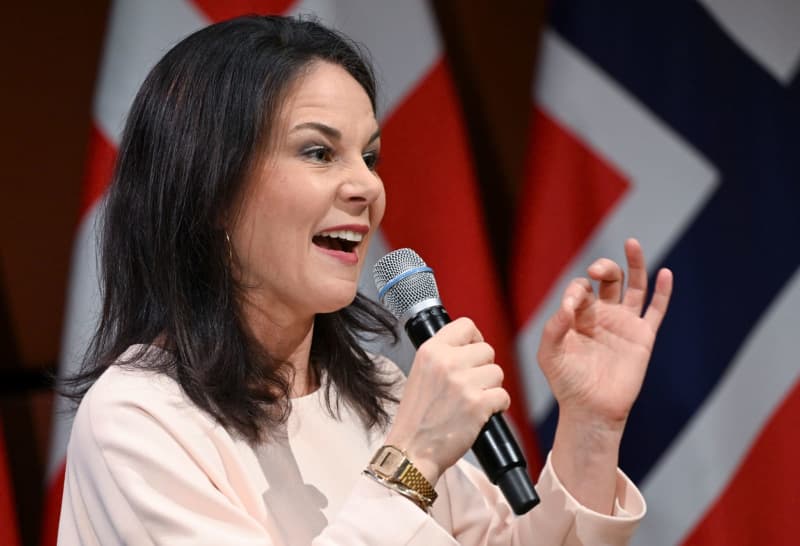Germany’s Foreign Minister Annalena Baerbock expressed relief and congratulations following a narrow vote in favor of espousing a pro-European course in Moldova’s constitution. The Moldovan electoral authorities reported that 50.46% of voters supported this path. Situated between EU member Romania and Ukraine, Moldova has faced a challenging historical context of competing influences from both the West and Russia. This decision marks a significant step for the country, reinforcing its commitment to align more closely with European Union standards and values.
Baerbock emphasized the importance of Moldova’s European integration as a vital security guarantee for its citizens, enabling them to live in peace and freedom. During a joint appearance with her Nordic counterparts—who included foreign ministers from Denmark, Finland, Iceland, Norway, and Sweden—she highlighted the solidarity among European nations in supporting not only Ukraine but also Moldova. This unity reflects a broader commitment to regional stability and the advancement of democratic governance in Eastern Europe.
Underlining the geopolitical significance of Moldova’s decision, Baerbock noted the ongoing threats posed by Russian aggression, which have manifested not only through military incursions but also through more subtle forms of hybrid warfare. This context, particularly evidenced by Russia’s invasion of Ukraine two and a half years earlier, has made it crucial for Moldova to secure its future through integration with Western institutions. The foreign minister’s remarks pointed to an acknowledgment of the challenges Moldova faces in this delicate balancing act amid external pressures.
The substantial support for the pro-European constitutional change demonstrates a willingness among Moldovan voters to reposition their country’s identity and affiliations towards Western Europe. This aligns with a broader trend in Eastern Europe, where nations have increasingly sought to distance themselves from Russian influence in favor of Euro-Atlantic partnership. For Moldova, this referendum outcome can be seen as both a rejection of external hegemonic interests and a reaffirmation of its aspirations for a more prosperous and democratic future aligned with EU standards.
As Moldova navigates its path forward, Baerbock and her counterparts remain committed to offering unwavering support. The unity among these Northern European nations underlines a collective understanding that stability in Moldova contributes to the greater security framework of the region. The support is crucial not only for Moldova’s internal development but also in fending off potential destabilizing actions from Russia, which continues to view EU expansion as a threat to its influence.
In conclusion, the constitutional vote in Moldova represents a pivotal moment for the country as it seeks to entrench its pro-European aspirations amidst external pressures. Baerbock’s emphasis on this development as a security guarantee reflects a broader European strategy of fostering democratic resilience in Eastern Europe. As Moldova embraces this new direction, it stands to benefit from the reassurance and backing of its European allies, a necessary component for ensuring long-term stability and progress in the face of ongoing geopolitical challenges.

